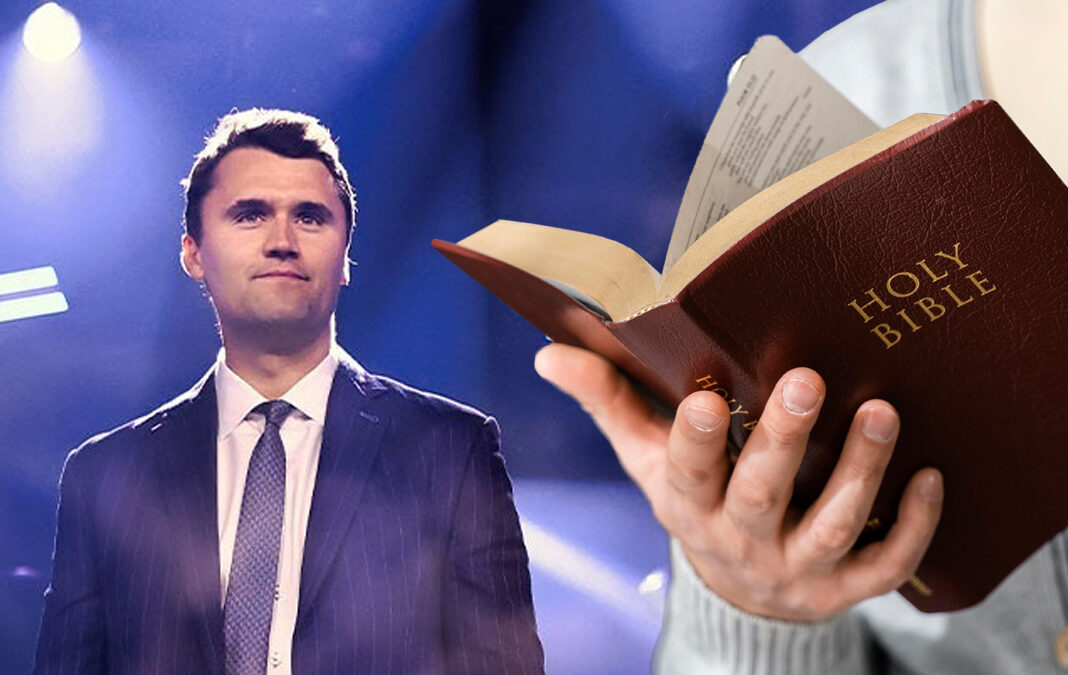
Why I Left Full Preterism by Sam Frost: A Review
Preterism was back in the news recently. Doug Wilson and Gary DeMar had another powwow in Moscow on Monday, November 3, this time an official debate. So, the timing is good to bring attention to this little book with big intentions.
The word preterism comes from the Latin word for past, and it describes certain biblical prophecies having been fulfilled in the past, specifically in the first century. Most Evangelical Christians are futurists, meaning they believe those same prophecies describe future events happening very far into the future, most not even having happened yet. I hadn’t heard the word preterism until I embraced postmillennialism in August 2022, probably because I didn’t put much stock in eschatology as a recovering dispensationalist. I was an eschatological agnostic.
In my zeal for my new postmillennial eschatology, I was learning everything I could find on the topic. One resource I found was Gary DeMar, whose knowledge of eschatology seemed encyclopedic. I started listening to his American Vision podcast and became a big fan. I didn’t know much about preterism, and nothing Gary said gave me the slightest indication he believed anything out of the ordinary about eschatology. I caught a few things here and there indicating he was supposedly controversial, but even when addressing the topic there were no red flags.
Then last year I went to the Fight Laugh Feast conference, and I mentioned something about DeMar. A number of people I respect seemed to agree he was in fact out of the ordinary eschatologically. Some even used the word heretical, which I found hard to believe at the time. Fast forward to DeMar some months back going to Moscow to meet with Doug Wilson and make an appearance on CrossPolitic. What I saw on the podcast certainly didn’t seem ordinary. Getting him to affirm something definitively is like trying to nail Jell-O to the wall, frustrating. Thus, I began my journey down the rabbit hole of full preterism (FP). This interview and DeMar’s trip to Moscow brought out the full preterists on Twitter en mass. It was bizarre. These guys, and it seems they’re all guys, have a certitude about them that makes James White look positively doubt ridden. Ken Gentry wrote a foreword to Frost’s book, and in it says of such preterist zeal, “I have seen immature Christians swallow the system whole, then become intoxicated with a cult-like arrogance.” Surely not all who embrace it are immature, but I experienced a bit of that arrogance as well.
I still had no clue how deep the hole went, but not long after this I came across a Sam Frost interview on YouTube. As soon as he mentioned the book, I had to get it. I’m glad I did because now I know why I’m most definitely not an FP. Frost mentioned something in the interview I found surprising given what I was learning about Gary DeMar. On the back of the book is an endorsement by Gary DeMar! He writes that Frost’s book “is a great starting point in understanding the inherent dangers of a full preterism position.” I wonder what he thinks about that now.
Sam Frost has some credibility in writing a book about leaving FP because he not only embraced it, but taught and championed it, and wrote a couple books about it. He was a mainstay at FP conferences for a number of years until he grew disillusioned and saw what Gentry describes as “methodological errors, positional inconsistencies, and internal fragmentation.” What started to give me that queasy this is just not right feeling was the apparent rejection of 2000 years of Christian orthodoxy.
In the first chapter Frost gives us a short history of FP, and lays out four points on which all eschatological positions agree:
- Christ will return bodily . . .
- at the end of time and history . . .
- and raise our bodies . . .
- and bring full judgment to all.
Christians in history have been unified on what Frost calls “these essential matters.” I was shocked when I began to understand they didn’t believe these “essentials.” And it isn’t that they just don’t believe them, but they seek to “undermine them entirely.” How they do this is by claiming that all prophecies, all eschatological events (Matthew 24, Revelation, Daniel, etc.) were fulfilled in the past, and specifically in AD70 and the destruction of Jerusalem. AD70 is the ultimate hermeneutic by which they interpret everything in Scripture. The pretzel logic I encountered on Twitter of people trying to defend this was hard to believe.
It’s difficult, if not impossible, for average Christians to wrap their minds around such a concept. What do you mean Jesus isn’t coming back “to judge the living and the dead”? What do you mean we will not be raised physically, bodily, out of the dust of the earth in resurrected eternal bodies? When I started to grasp what FP is, I thought there is no way Gary DeMar believes such things. Then seeing him on CrossPolitic trying to talk about the resurrection and watching the incredulous faces of the guys encountering this, it seems he does. Like I said, it’s hard to nail Gary down.
The short history of FP Frost recounts goes back to the early 70s. Out of 2000 years a half century or so isn’t much. Yet we’re to believe Christians for all that time completely misunderstood what God was saying about the very nature of redemptive reality, of reality itself? Sure seems like it. One man is responsible for this, Max King, an ex-Church of Christ minister. He published his first book in 1971 called, The Spirit of Prophecy, and as the description at Amazon says, it “shook the foundations of modern Bible interpretation.” It must not have been very high on the Richter Scale since so few have ever heard of it or FP. He wrote another book in 1987 Frost calls his magnum opus, The Cross and the Parousia of Christ. And he adds, this is the first documentation of full preterism, even though preterist ideas are common in church history.
Another thing that is new in church history was the FP antipathy to creeds Frost recounts in a chapter on, “History, Creeds, and Sola Scriptura.” The latter is a Reformation affirmation, and is important in this context because the FPs claim they only reject the creeds at the points which they disagree with Scripture. But I always thought the creeds were based on Scripture. Apparently not. This explains DeMar’s fixation on “show me the verse,” which he repeats ad nauseam when discussing this topic, as if affirmative declarations in Scripture settle anything. Or that inferring something from Scripture that isn’t spelled out is illegitimate. Like, for example, the Trinity. The word doesn’t exist in our Bibles, so “show me the verse” isn’t going to work for something Christians have believed since Christ rose from the dead and Trinitarian orthodoxy agreed upon at the Council of Nicaea.
The problem with such extreme Biblicism is that it contradicts itself. Because God didn’t see fit to give us a textbook or operating manual, spelling out exactly what we’re to believe but rather a story; doctrine must be inferred or derived from the text. The authority of Scripture doesn’t come directly from the text but must be interpreted, and upon that interpretation we stand or fall. FPs are “stuck” with the rest of us interpreters, even though their absolute certitude indicates otherwise. The inevitability of interpretation means they criticize those who do exactly what they do, interpret the text! You would think this obvious reality might engender a little humility, but alas you would be wrong. Absolute certainty for finite creatures like us is an impossibility. Sadly, too many people haven’t realized that.
Another concept I hadn’t encountered before reading Frost is the idea of infinity, in the title of chapter 4. This is truly bizarre. According to FP the world as we know it will never end (remember everything was fulfilled, finished, in AD70), so there will be no end to baby making, or what they call “infinite procreation.” As Frost writes from the FP perspective, “’the Bible nowhere speaks about the end of time, but only of the time of the end,’ which of course was AD 70.’” And if the covenant is eternal, forever, then history must go on eternally. Like I said, bizarre. But what about the elect. There can’t be an infinite number of those because Scripture is clear on this, not much interpretation required. Frost quotes John 6:39:
39 And this is the will of him who sent me, that I shall lose none of all those he has given me, but raise them up at the last day.
Frost writes a chapter on John 6 because it was critical in moving him away from FP.
Also, the concept of the book of life is affirmed throughout Scripture, and the idea is that a certain number of people are in it, not an infinitely expanding number of people. Daniel 12:1, for example, states: “But at that time your people—everyone whose name is found written in the book—will be delivered.” Doesn’t sound like an ever expanding book to me.
Frost finishes with a chapter on the reasons he left FP, and some might surprise you. One is that FP and dispensationalism “share a lot in common.” I didn’t see that coming, although he does mention dispensationalism several times. The similarity is that they are both “all or nothing” approaches, and both have a “one time fulfillment” in mind, among other things.
I could write much more, but my objective in writing this is to give you some sense of the bizarreness of this very newfangled eschatology, and the inevitable unorthodox implications that result. It’s worth the read if you’re curious or have someone in your life who is thinking about or embracing FP.




Recent Comments